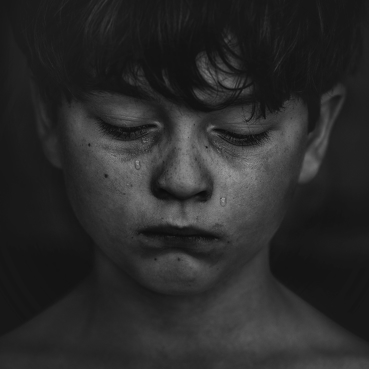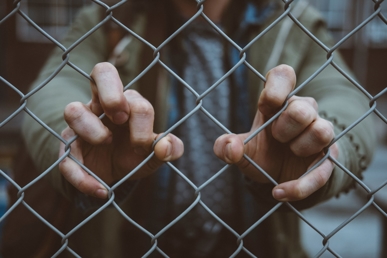 With the new school year in full swing, it’s important that parents
be on the look out for signs of bullying in their child’s life.
While not a new concept, bullying is a rising issue for today’s
youth, in large part due to technology providing an entirely new avenue
for kids to harass, isolate and belittle fellow schoolmates. Bullying
should never be taken lightly. Whether it’s verbal, physical or
emotional, enduring bullying can have long-term effects on a child’s,
and eventually adult’s, sense of self-value and worth.
With the new school year in full swing, it’s important that parents
be on the look out for signs of bullying in their child’s life.
While not a new concept, bullying is a rising issue for today’s
youth, in large part due to technology providing an entirely new avenue
for kids to harass, isolate and belittle fellow schoolmates. Bullying
should never be taken lightly. Whether it’s verbal, physical or
emotional, enduring bullying can have long-term effects on a child’s,
and eventually adult’s, sense of self-value and worth.
Sometimes the signs of bullying are obvious, with bruises, missing belongings or torn clothing giving clear indication that a child is being targeted at school. Other times, the signs can be more subtle, and unfortunately kids aren’t always forthcoming with what’s happening between them and their peers. There are certain signs you can look for that could indicate bullying, such as: agitation or moodiness, refusal to attend school, sudden changes in school performances, stomachaches or headaches, difficulty sleeping, anxiety or depression for unknown reasons, afraid of riding the bus or being alone with peers, increased self-blame, and comments about worthlessness or suicide.
If you suspect that your child is the victim of bullying at school, there are certain actions you can take to help open up communication and address the issue.
Comment on Changes When You See Them
It can be challenging for children to come forth about their bullying, especially if they’re dealing with self-blame or a sense of worthlessness. It can feel embarrassing or shameful to talk about, which can result in them keeping to themselves and trying to process alone. If you’re noticing behavioral changes, make those observations out loud—doing so can open up a window of conversation for your child that they weren’t sure how to start. If they do open up, the best thing you can do is listen without judgement. Don’t make comments that suggest they did something to provoke the bullying (“Did you do something to upset those kids?”) but instead ask the question with an open mind (“I noticed your old friend ignored you at the pick-up line, is everything okay?”)
More than anything, your child needs to feel unconditionally loved and heard. They need to feel that they have a confidant and cheerleader on their side who believes in them and confirms their value and worth. They need to be reminded that bullying has nothing to do with them and who they are, and everything to do with the bully and what they’re going through. Learning to disassociate a peers unkind words and actions with their own value, and instead see the cruelty as a reflection of someone else’s pain and processing, creates a deeper understanding of people and self, while helping to deflect the impact of the bullying.
Make Their Teacher Aware
 A good amount of school bullying happens during intermittent periods that
aren’t directly in front of a teacher. Before and after school,
lunches, recesses, bathrooms, and hallways in-between classes are time-periods
when bullying is common. While your child’s teacher may not have
seen the bullying occur, they can usually see the behavioral differences
in the victim, and want to be made aware of what’s happening so
that they can help create a safe environment for every student. If the
bullying is extreme, schedule a meeting with your child’s principal
so that they can intervene and confront the bully and their parents. If
there are severe physical threats being made, it’s even possible
that the police will need to get involved. If you or your child has reservations
about talking with these figures about the problem, remember that your
child likely isn’t the only victim. By speaking out and making teachers
aware, you may be inadvertently protecting other children who are experiencing
the same issues.
A good amount of school bullying happens during intermittent periods that
aren’t directly in front of a teacher. Before and after school,
lunches, recesses, bathrooms, and hallways in-between classes are time-periods
when bullying is common. While your child’s teacher may not have
seen the bullying occur, they can usually see the behavioral differences
in the victim, and want to be made aware of what’s happening so
that they can help create a safe environment for every student. If the
bullying is extreme, schedule a meeting with your child’s principal
so that they can intervene and confront the bully and their parents. If
there are severe physical threats being made, it’s even possible
that the police will need to get involved. If you or your child has reservations
about talking with these figures about the problem, remember that your
child likely isn’t the only victim. By speaking out and making teachers
aware, you may be inadvertently protecting other children who are experiencing
the same issues.
School should be a place where a student feels safe, and it’s the school staff’s responsibility to help ensure that it remains that way for all children. They can’t do that unless they’re made aware of the problem, so don’t be afraid to speak out. In addition to this, once a teacher is made aware, they can make a point to be a safe place for your child by checking in often and reassuring him or her that they can always come to their classroom if they need help or someone to talk to.
Create Game-Plans with Your Child
Once the form of bullying is identified, it’s important that you sit down and talk about your child’s options moving forward. Different children will have different comfort levels with confrontation, and more often than not, children aren’t sure what they are or are not allowed to say or do to stick up for themselves. Talk with your kid about how to diffuse situations, how to walk away, and how to utilize the buddy-system. Allow them to come up with game plans that they think might work by asking questions like “What do you think you could say or do next time the bully approaches you?” and impart your wisdom accordingly.
If you’re noticing that your child is showing signs of being bullied at school or online, start creating a safe-place between you and your child by being an open-minded listener. Bullying can range drastically, from a snide comment at school to severe and cruel cyber-bullying. Don’t chalk your child’s behavior up to “age” or “attitude” and hope that it will get better. If your kid is walking through bullying, it’s important that they have an adult who can help guide them by listening, loving, and intervening when necessary.
